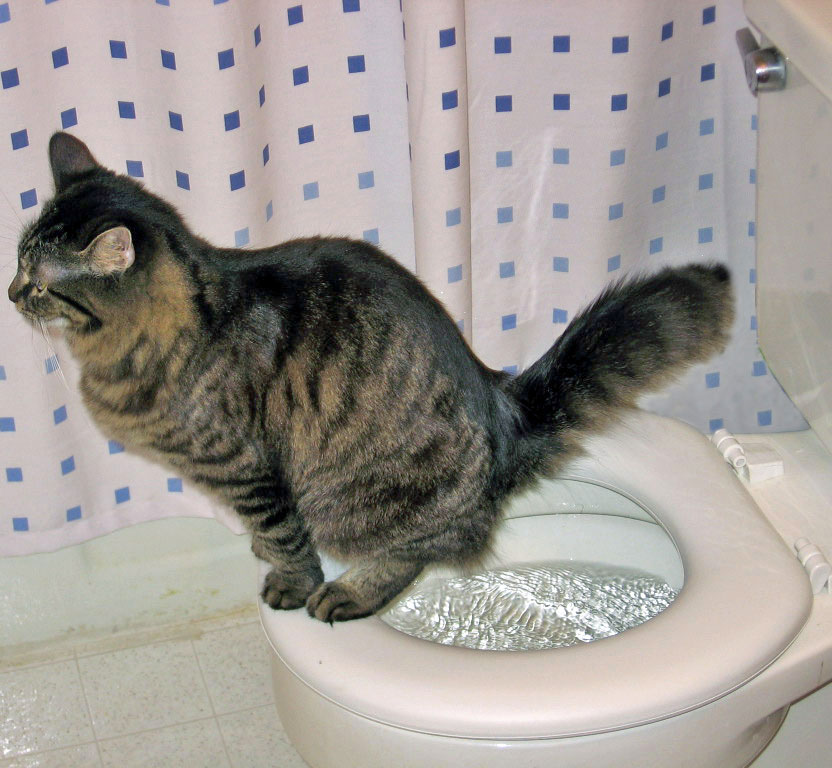Why Flushing Cat Poop Down Your Toilet Is Bad - Suggestions for Correct Disposal
Why Flushing Cat Poop Down Your Toilet Is Bad - Suggestions for Correct Disposal
Blog Article
Were you looking for suggestions concerning How to Dispose of Cat Poop and Litter Without Plastic Bags?

Intro
As pet cat proprietors, it's important to be mindful of exactly how we deal with our feline pals' waste. While it might appear convenient to flush feline poop down the toilet, this practice can have destructive repercussions for both the atmosphere and human health and wellness.
Environmental Impact
Purging pet cat poop presents damaging microorganisms and parasites into the water, posing a significant danger to aquatic environments. These impurities can adversely affect marine life and concession water top quality.
Health Risks
Along with environmental issues, purging pet cat waste can likewise pose wellness dangers to people. Pet cat feces might include Toxoplasma gondii, a bloodsucker that can trigger toxoplasmosis-- a potentially serious health problem, particularly for expecting women and people with damaged immune systems.
Alternatives to Flushing
Fortunately, there are more secure and much more responsible methods to get rid of pet cat poop. Take into consideration the complying with choices:
1. Scoop and Dispose in Trash
One of the most common technique of getting rid of cat poop is to scoop it right into a naturally degradable bag and toss it in the garbage. Be sure to make use of a devoted trash inside story and take care of the waste promptly.
2. Usage Biodegradable Litter
Choose biodegradable cat trash made from products such as corn or wheat. These litters are eco-friendly and can be securely disposed of in the trash.
3. Bury in the Yard
If you have a lawn, think about hiding feline waste in a designated location away from vegetable gardens and water resources. Be sure to dig deep sufficient to stop contamination of groundwater.
4. Set Up a Pet Waste Disposal System
Purchase a pet garbage disposal system particularly developed for feline waste. These systems make use of enzymes to break down the waste, decreasing odor and environmental effect.
Conclusion
Responsible animal ownership prolongs beyond providing food and sanctuary-- it additionally involves proper waste administration. By avoiding flushing cat poop down the bathroom and selecting alternative disposal techniques, we can lessen our ecological impact and shield human health.
Why You Should Never Flush Cat Poop Down the Toilet
A rose by any other name might smell as sweet, but not all poop is created equal. Toilets, and our sewage systems, are designed for human excrement, not animal waste. It might seem like it couldn’t hurt to toss cat feces into the loo, but it’s not a good idea to flush cat poop in the toilet.
First and foremost, assuming your cat uses a litter box, any waste is going to have litter on it. And even the smallest amount of litter can wreak havoc on plumbing.
Over time, small amounts build up, filling up your septic system. Most litter sold today is clumping; it is made from a type of clay that hardens when it gets wet. Ever tried to scrape old clumps from the bottom of a litter box? You know just how cement-hard it can get!
Now imagine just a small clump of that stuck in your pipes. A simple de-clogger like Drano isn’t going to cut it. And that means it’s going to cost you big time to fix it.
Parasitic Contamination
Believe it or not, your healthy kitty may be harboring a nasty parasite. Only cats excrete Toxoplasma in their feces. Yet it rarely causes serious health issues in the cats that are infected. Most people will be fine too if infected. Only pregnant women and people with compromised immune systems are at risk. (If you’ve ever heard how women who are expecting are excused from litter cleaning duty, Toxoplasma is why.)
But other animals may have a problem if infected with the parasite. And human water treatment systems aren’t designed to handle it. As a result, the systems don’t remove the parasite before discharging wastewater into local waterways. Fish, shellfish, and other marine life — otters in particular — are susceptible to toxoplasma. If exposed, most will end up with brain damage and many will die.
Depending on the species of fish, they may end up on someone’s fish hook and, ultimately on someone’s dinner plate. If that someone has a chronic illness, they’re at risk.
Skip the Toilet Training
We know there are folks out there who like to toilet train their cats. And we give them props, it takes a lot of work. But thanks to the toxoplasma, it’s not a good idea.
:max_bytes(150000):strip_icc()/0S1A1090-49a8e2c66f8e41d6901f2559787a7f24.jpg)
I stumbled upon that content on Don’t flush cat feces down the toilet while doing research the web. Don't hesitate to take a moment to promote this blog posting if you enjoyed reading it. Thank-you for taking the time to read it.
Estimate Free Report this page